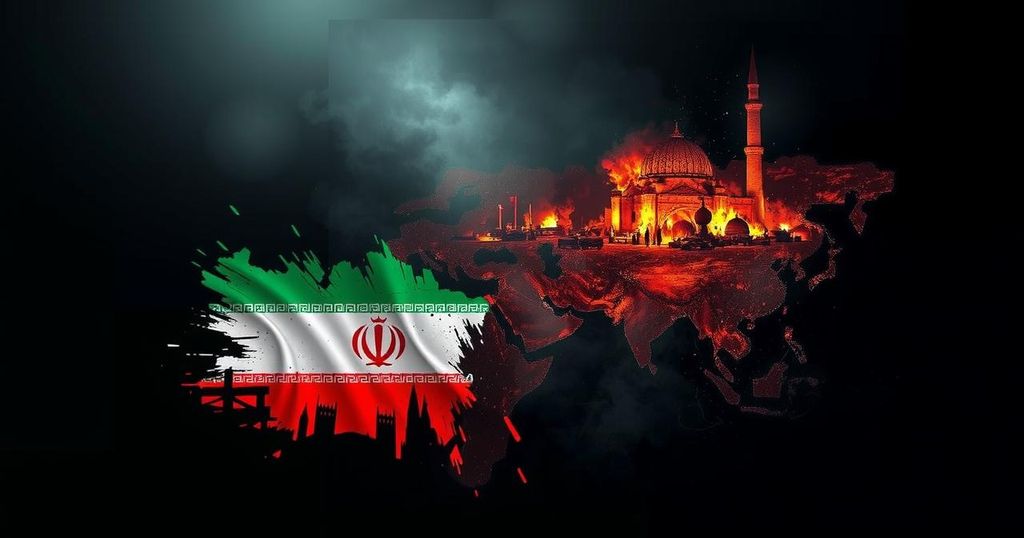Iran is struggling in Syria due to its depleted resources from conflicts with Israel, leaving the regime vulnerable against Sunni rebels. Research indicates that Iran’s military capabilities have weakened significantly. Tehran is seeking Russian assistance, but domestic criticism is escalating regarding its foreign military involvements.
Recent developments in Syria have highlighted significant weaknesses in Iran’s strategic capabilities, particularly as it pertains to the ongoing conflict with Sunni insurgents. According to Benny Sabati, a researcher at the Institute for National Security Studies, Iran’s extensive military commitments against Israel have left it severely depleted. “The Iranians have paid a very high price for operating all their proxies against Israel over the past year,” Sabati explained, emphasizing that this has critically undermined Iran’s ability to support its allies in Syria, particularly the Assad regime.
Sabati further elaborated that many of Iran’s soldiers and field commanders, essential for operational effectiveness, have been eradicated, resulting in a substantial reduction in military capacity. “Their command has been eliminated,” he remarked, highlighting the gravity of the situation. As a consequence, Iran is unable to offer assistance or effectively counteract threats, which has further exposed them to perilous situations. Recent assaults have targeted Iranian military personnel, evidenced by the death of several members of the Islamic Revolutionary Guard Corps (IRGC) and the capture of an Iranian consulate.
Moreover, Sabati noted that Iran is struggling to manage multiple fronts, particularly the conflict against Israel, which has limited their strategic options in Syria. “The Iranians have an issue. They neither like nor believe in fighting on two fronts,” he stated, suggesting that the focus on Israel has led to a neglect of the Sunni front, which has now culminated in dire consequences for Iran’s influence in the region.
To address this predicament, Iran has sought assistance from Russia, with recent communications between Iranian and Russian foreign ministers indicating a request for support. Nevertheless, even efforts to rally regional allies appear ineffective, as described by Sabati: “He can come to encourage – that’s all he can do. They don’t have much in their pocket.”
Amidst this turmoil, domestic discontent in Iran is growing, with opposition to financial and military support for regional allies coming to a head. Sabati noted the volatility of the situation, underscoring that the future stability of Iran and its allies hangs in the balance, mainly dependent on Russia’s response to the insurgency. If Russia intervenes effectively, it could alter the trajectory of the conflict significantly; however, if they abstain, both Iran and the Syrian regime risk further weakening.
Iran’s involvement in the Syrian conflict has been characterized by its commitment to support the Assad regime and combat Israeli influence in the region. However, recent offensives by Sunni rebels have exposed vulnerabilities in Iran’s strategy and military capabilities. The Institute for National Security Studies provides analytical insights into how Iran’s multi-front engagements, particularly its confrontations with Israel, have strained its resources and weakened its position in Syria.
In conclusion, Iran’s military and strategic challenges in Syria are compounded by its intense focus on combating Israel. As various fronts escalate, Iran’s operational effectiveness diminishes, leaving its regional allies vulnerable. The call for Russian assistance further underscores Iran’s precarious position, with the outcomes of any foreign intervention poised to shape the future landscape of both Iranian and Syrian governance.
Original Source: www.jpost.com






